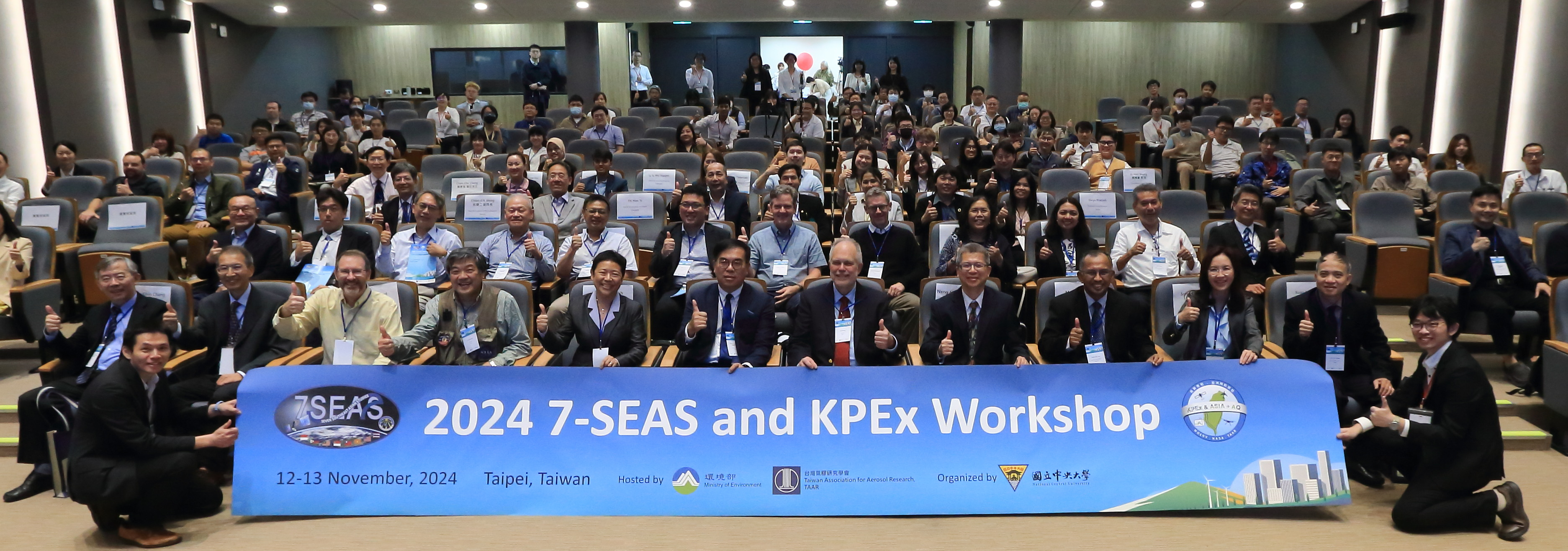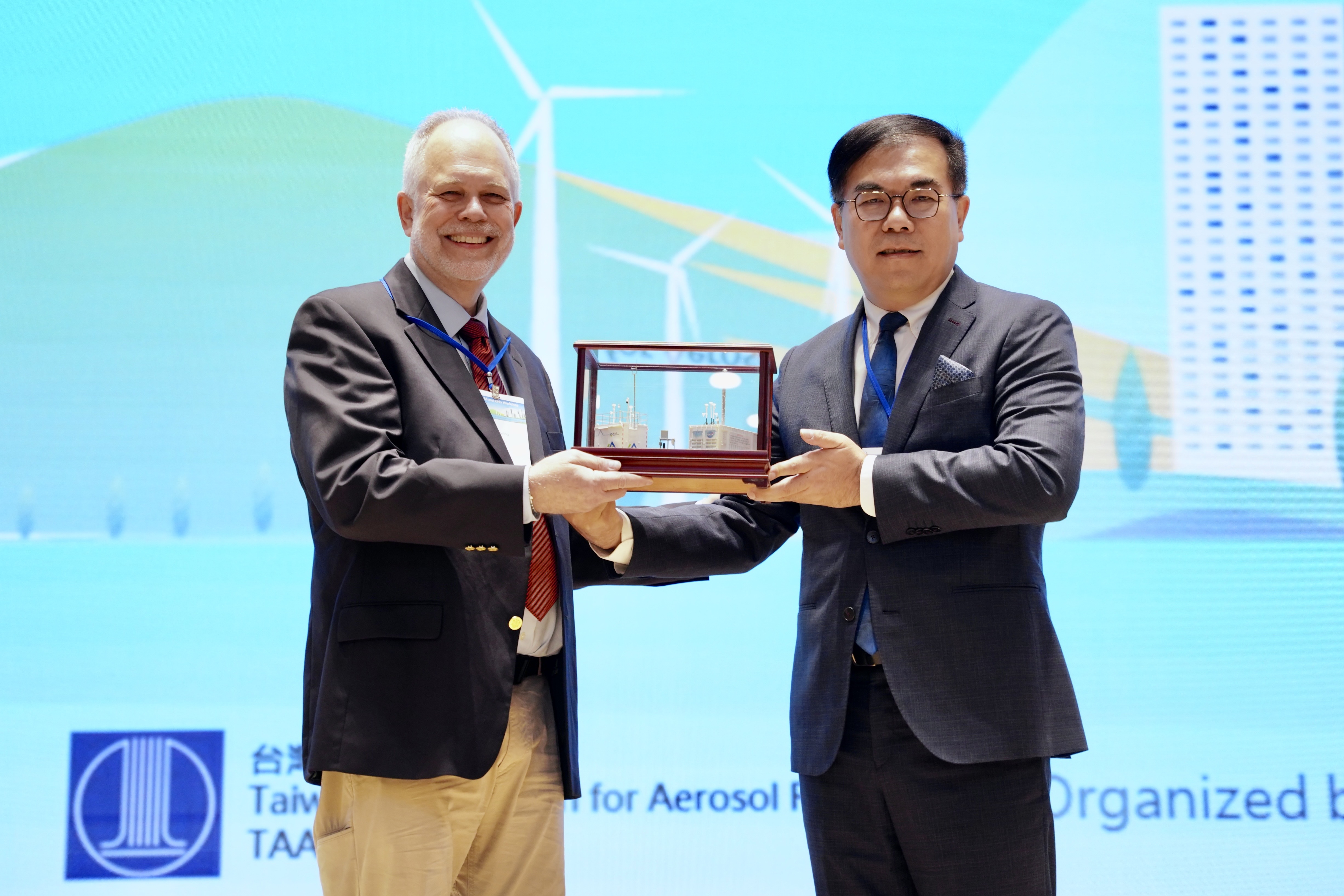The Ministry of Environment joins hands with NASA to promote international cooperation in atmospheric monitoring experiment
Share to Line Share to Facebook Share to X Print ContentThe Ministry of Environment held the “2024 7-SEAS and Kao-Ping Experiment (KPEx) Workshop” on November 12-13 at the Ministry's conference hall. About 40 representatives from academic research institutions in Taiwan, the United States, South Korea, Thailand, Vietnam, Indonesia, Singapore, the Philippines, Malaysia, and Bangladesh attended. More than 60 experts and scholars from domestic universities and research institutes, as well as representatives from environmental agencies and industries, also participated.
Beginning 2024, the 7-SEAS/Urban-AQ focuses on transboundary pollution, particularly urban air quality (AQ) in big cities. Meanwhile, the Kao-Ping Experiment (KPEx) conducted in southern Taiwan in February-March 2024, in line with NASA/ASIA-AQ’s overflights on Taiwan, is a prelude of 7-SEAS/Urban-AQ designed to address local air quality challenges.
At the 2024 7-SEAS and KPEx Workshop, not only were the measurement results from the KPEx presented, but discussions were also held on urban air quality and transboundary pollution issues in East and Southeast Asia. These discussions will help enhance understanding of atmospheric environmental problems in neighboring countries and promote international interaction.
Minister of Environment Peng Chi-Ming, in his opening remarks, stated that the 7-SEAS (7 South East Asian Studies) Program is an international environmental study initiative co-organized by NASA, Taiwan, and Southeast Asian countries. Its primary goal is to investigate the long-range transport of air pollutants from biomass burning in Southeast Asia, and their interactions with the atmosphere, radiation, and climate. Building on a long history of cooperation, the 7-SEAS Program is now embarking on a new chapter in urban air quality research. Taiwan’s KPEx, conducted in cooperation with NASA’s ASIA-AQ Flight Program, is analyzing the 3-D distribution and transport characteristics of local air pollution, exploring the mechanisms of secondary pollutant formation and distribution. This study, combined with modeling and validation, will improve the ability to assess future regulatory measures. The integration of ground-based, vertical, and flight monitoring results will also provide valuable data for calibrating satellite observations, offering significant benefits for international environmental monitoring applications.
In his remarks, Dr. Hal Maring, Program Manager at NASA Headquarters, expressed his gratitude to the representatives from participating countries and was particularly impressed by Taiwan’s integration of 3-D research capabilities during the KPEx campaign in this spring, acknowledging that Taiwan’s environmental monitoring technology has gained international recognition.




- Source:
- Ministry of Environment
- Published:
- 2024-11-12
- Updated:
- 2025-03-19
